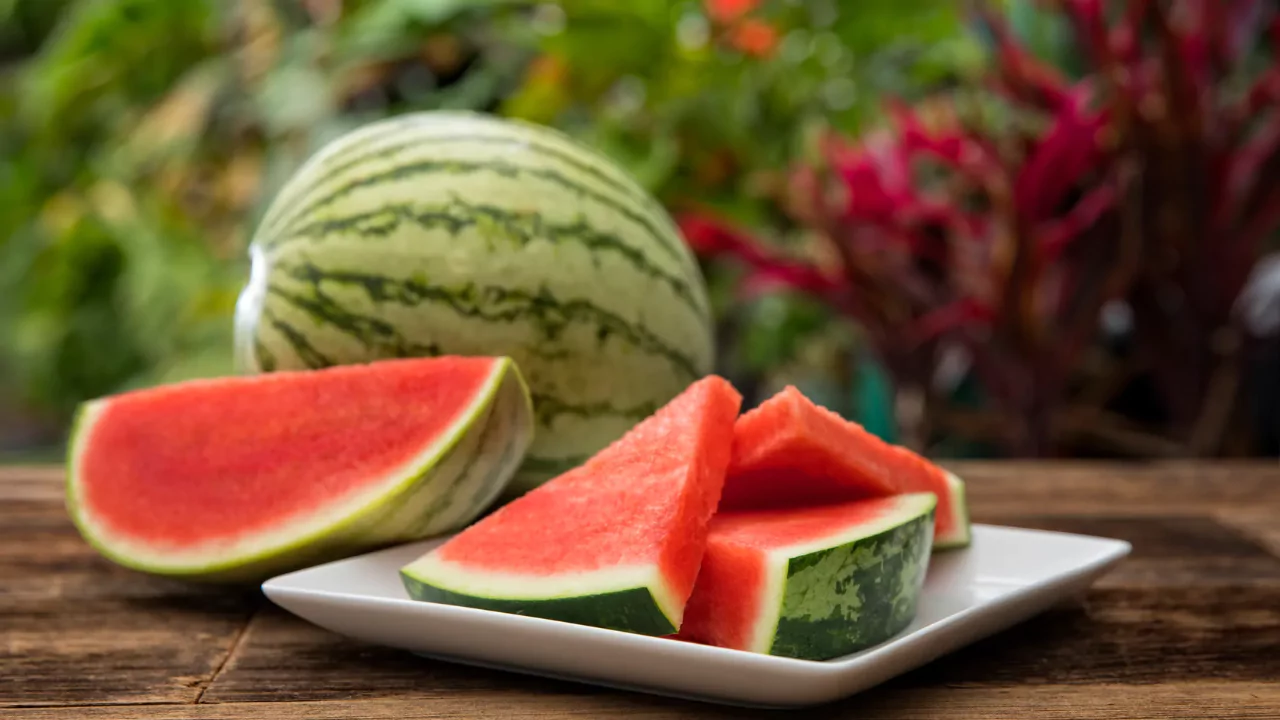
You absolutely enjoy watermelon, especially during summer and as a refreshing snack, but is it any good for your health? After all, watermelon’s little more than water and sugar, right?
That is what many people believe, but researchers have come to understand that there are health benefits to watermelon. Sweet juicy watermelon contains phytochemicals and nutrients that are essential for healthy development.
Watermelon contains the most lycopene of any fruit or vegetable, even more than tomatoes, 20 mg. per 2-cup serving. Lycopene is an important plant compound that helps to remove damaging free radicals from harmful cells.
Watermelon is an ideal food for anyone looking to lose a few pounds, or to maintain a healthy weight. With only 40 calories per cup and 0 grams of fat, watermelon is a great option. Watermelon is 92 percent water and contains 0.6 grams of fiber, so one cup of watermelon helps curb cravings and provides a sensation of fullness.
Watermelon Nutritional Information Per Serving (280 grams)
Calories: 85
Sugar: 17 grams
Protein: 1.7 grams (3% daily value)
Vitamin A: 31%
Vitamin C: 37%
Vitamin D: 0%
Calcium: 2%
Iron: 3%
Vitamin B6: 5%
Magnesium: 7%
Cholesterol: 0 mg 0%
Total Fat 0.4 grams
Saturated Fat: 0 grams
Polyunsaturated Fat 0.1 grams
Monounsaturated Fat0.1 grams
Heart Health
Citrulline, an amino acid present in watermelon, has been noted for its ability to improve blood flow and cardiovascular function. Lycopene may also support cardiovascular wellness.
Increasing watermelon consumption may be beneficial if you have high blood pressure or a family history of hypertension. Hypertension, often termed as ‘silent killer’, goes unnoticed without symptoms but is a significant factor for strokes.
Research shows that modifying one’s diet can lower blood pressure significantly and maintain it within a normal range. The dietary pattern that seems to support healthy blood pressure levels is one low in red meat, sugar, and cholesterol, and high in fruits, vegetables, whole grains, and nuts and seeds.
Watermelon fits nicely into this whole-foods regimen. Watermelon is also useful for those who suffer from diabetes or high blood pressure related tingling or numbness due to its blood circulation enhancing properties.
Cancer
What if there is a way to reduce the risk of cancer? One report, Food, Nutrition, and the Prevention of Cancer: a Global Perspective reviewed more than 4,500 research studies and came to a remarkable conclusion which states that people consuming 5 or more servings of fruits and vegetables daily have 20 percent or more reduction in the risk of cancer.
Particularly, watermelon helps to slash those cancer numbers. Certain cancers are associated with free radicals, and the phytochemicals in watermelon that scavenges and destroys free radicals helps combat these types of cancers.
Vitamin C
Watermelon comprises Vitamin C with 12.5 mg in a 1 cup serving. Vitamin C strengthens the body’s immune system and promotes wound healing. Moreover, it aids in utilizing iron for the production of red blood cells.
Selecting Watermelon
To obtain the full nutritional value from watermelon, fully-ripened fruits should be selected as they have the highest content of lycopene. Forget thumping watermelon to gauge ripeness. Instead, observe the rind.
It should be dark green and dull, not shiny. Turn the watermelon over and look at the “ground” spot. If it is yellowish, then the watermelon is ripe. A white spot indicates unripe fruit.
Pick the watermelon up. It should feel heavy for its size. In fact, one way to pick a good watermelon is by picking up several of similar size and choosing the heaviest one.
Cut watermelons retain their lycopene for at least 7 days when stored in the refrigerator. Nutrient quality holds high even after 7 days of cutting and storing in the refrigerator, though quality and taste diminish.
An uncut watermelon should be stored in cool dry locations such as basements. After cutting a watermelon, store sections of it in covered containers to be placed in the refrigerator.
Using Watermelon
Certainly, the best way to enjoy watermelon is to eat it fresh off the rind with juice dripping down your chin. Though, watermelon has many more potential uses. It can be used as an ingredient in smoothies to add refreshing and juicy flavors, or it can be pureed with yogurt and frozen to make pops.
Watermelon can also be made into sorbet or added to green salads. It pairs wonderfully with grilled items too like grilled shrimp and chicken. Regardless of how it is served, watermelon is a great way to obtain cool refreshing nutrition.